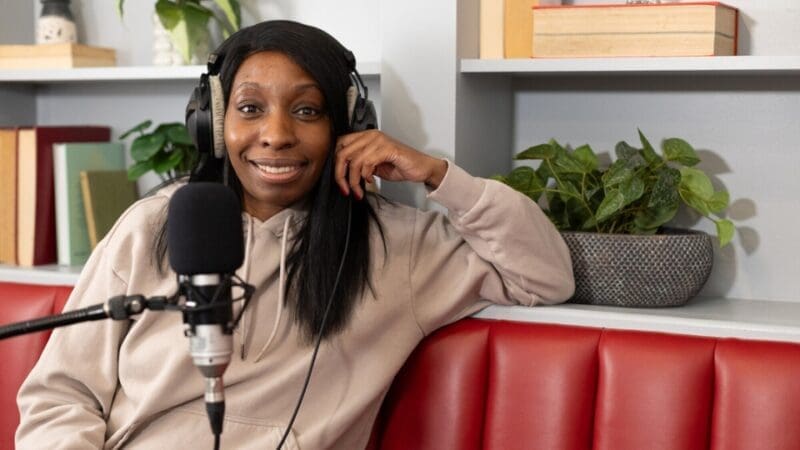
My life with dementia – a Dementia UK podcast
In Dementia UK’s new podcast, ‘My life with dementia’, real people share their experiences of living with, caring for, or losing someone to dementia.
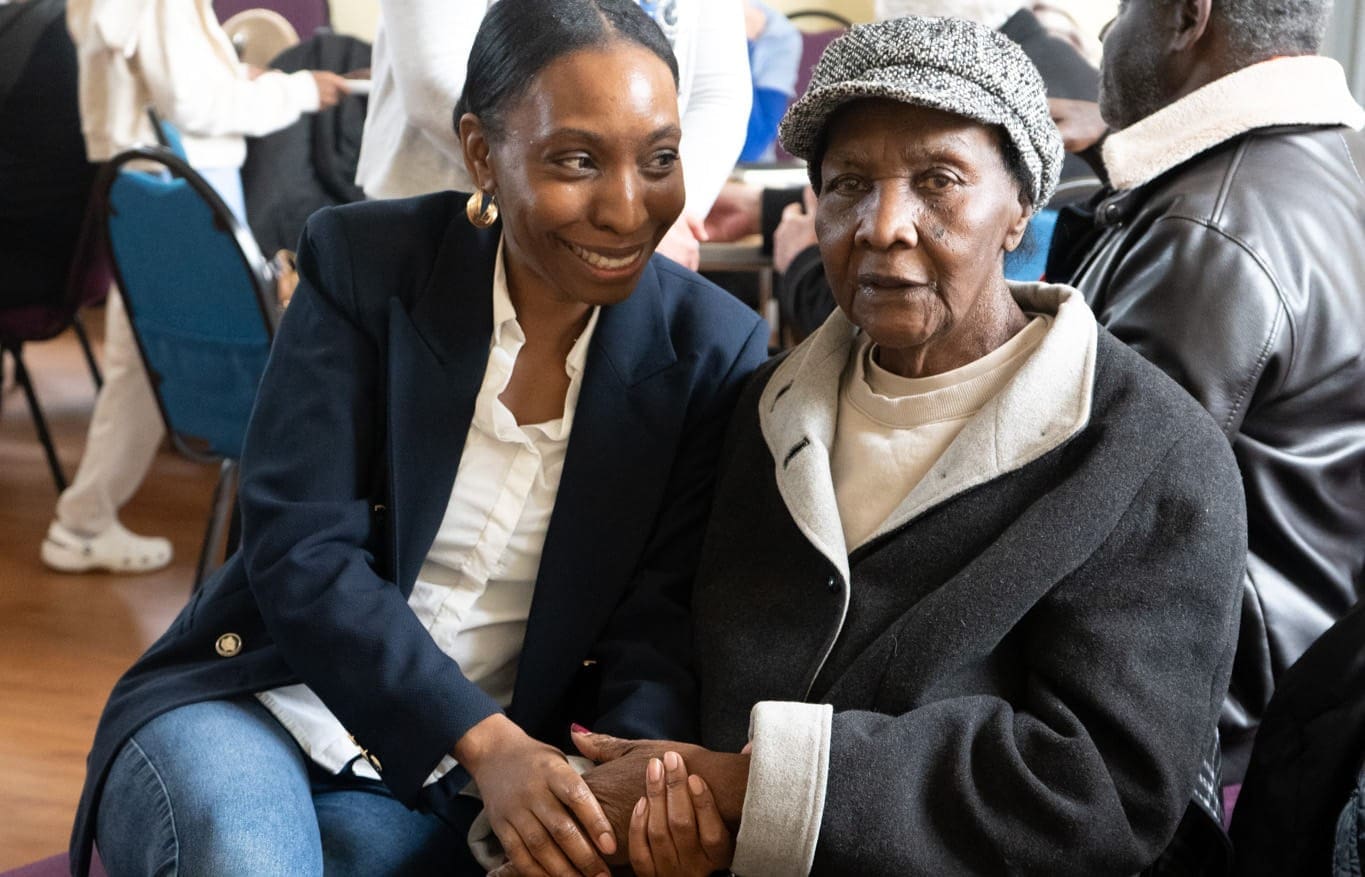
When Michaela’s grandmother, Vanda, was diagnosed with vascular dementia, she dedicated herself to creating a place where dementia wasn’t a taboo subject.
It still feels quite strange to talk about my beloved nan, Vanda, in the past tense. She died in January 2025, three years after she was diagnosed with vascular dementia.
She was the rock of our family – and my best friend in the world.
Nan grew up on the Caribbean island of Saint Vincent and moved to the UK when she was 16.
One thing she quickly instilled in us is the importance of family. Soon after I was born, my mum had to return to work, so Nan took on a lot of the responsibilities for raising me. And though she could be strict, she did it with so much love. She also helped raise my daughter, Tiana-Bleau. For us, it’s not unusual for children to be raised by many members of the family.
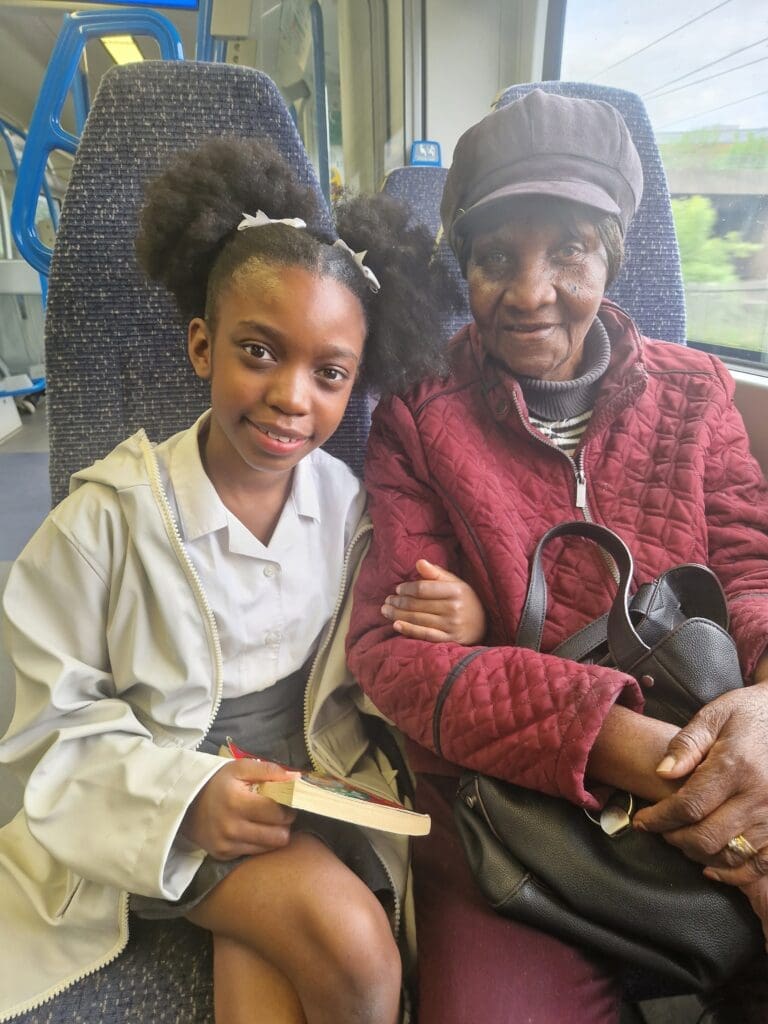
When I think of so many happy memories throughout my life, Nan is right there next to me. And many of these are on a Sunday, because Sunday was family day. From early in the morning, she would be cooking the most amazing Caribbean food. People would come and go, and the house would just be vibrant and happy. The music would be playing and she’d be dancing to her favourite reggae music. She wanted the home to be a place of joy.
Nan also wanted all of her children and grandchildren to remember their roots in Saint Vincent. We have all done trips back to Georgetown, and she would show us where she grew up. We’d even wash in the river like she used to do when she was young.
Now that she’s not with us, I appreciate how special this was.
The early signs of Nan’s dementia were subtle. And to be honest, the possibility of dementia didn’t even enter my mind. She was becoming increasingly forgetful, but we just put it down to old age.
Over time, it became clear that it was something more serious. I realised that it wasn’t just Nan’s memory. She was always someone who took so much pride in how she dressed, but had started wearing quite random outfits. She was confusing recipes that she’d made for decades. She was losing interest in things she’d previously loved, and often became agitated, which wasn’t like her.
In 2021, I got a call from my grandad, her husband, saying Nan couldn’t get out of bed. I rushed over and we took her to the hospital, where it was confirmed she’d had a stroke. As it was in the middle of Covid, the hospital were very strict on visitors. So over those few weeks she was by herself for long periods of time. I could tell how upset this was making her, and so I convinced them to discharge her with a care plan. One of the requirements of this care plan was that she’d get tested at the memory clinic.
A few months later, I received a phone call informing me that she had vascular dementia. After the diagnosis was given, we were left entirely to our own devices. No follow-up. No signposting. Nothing.
And so there I was, in a state of shock. Then came the devastation. I couldn’t bear the thought of losing her. For weeks I cried myself to sleep.
Despite this, I didn’t hesitate to fill the role of Nan’s primary carer. All of my life she had been there for me. Now it was my turn to be there for her. And even though the juggle of caring, full-time work and parenting was a lot, I never regretted this for a second. 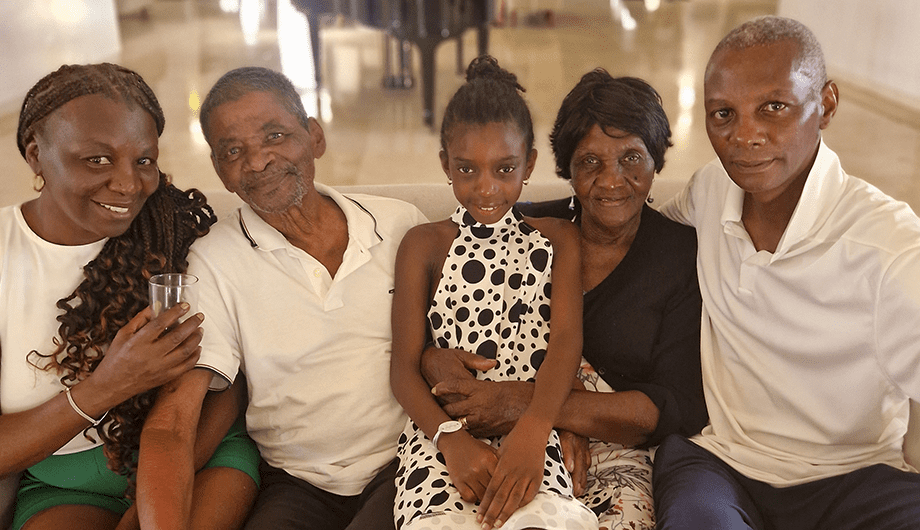
After Nan’s diagnosis, I realised that dementia simply wasn’t spoken about in our community. It’s almost as if dementia is perceived as ‘losing your mind’, or worse, not being a legitimate illness. There was certainly a sense of denial in some friends and family about it.
The fact is, dementia is a progressive condition. That means that change becomes a constant. And let’s face it, when that change is happening in someone you love, it’s scary. But just because it’s scary doesn’t mean we should hide it away.
And so, a few months after Nan’s diagnosis, I came to the realisation that she still had so much living to do. I decided to dedicate myself to making her last years ones of joy. I looked for places where I could take her and she could be herself – Vanda with dementia. But just as I struggled to access support after the diagnosis, I also struggled to find community groups in our area. And if they did exist, they were often on weekdays when I was working!
That’s when an idea entered my mind.
I wanted to tackle the stigma around dementia, find more support as a carer, and make sure Nan’s life stayed full of fun and community. So in early 2024, I created the Spring Bleau Dementia Café. The name comes from the two most important people in my life. Spring was Nan’s maiden name before she got married, and Bleau is part of my daughter’s name.
There was a lot of self-doubt in my mind in those early days, and I had no idea whether it would work out. But with the help of friends and family, the café was born.
On Saturdays from 11am-1pm, I want to give people a sense of what my home was like on Sundays growing up. The home Nan created. I want the café to feel like a home, and the people in it to feel like a family.
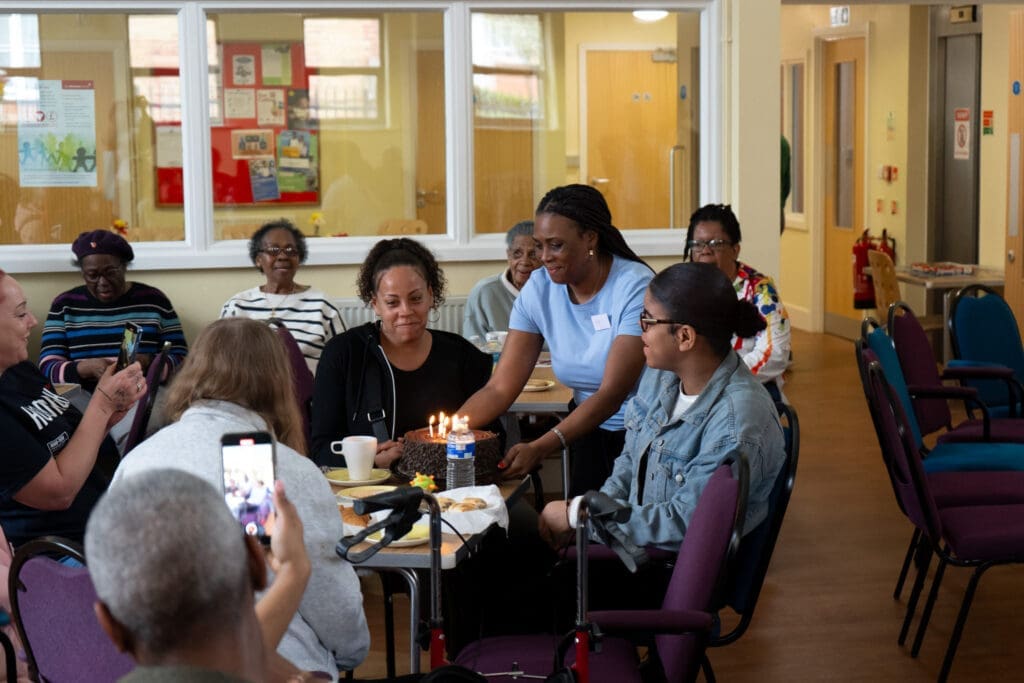
There is music, dancing, and no shortage of food. We also have people come in to talk about dementia, health checks and even the odd film crew! It’s a safe place where people can smile or let the tears flow. The café is welcome to people living with dementia, their carers, and importantly – even people who don’t live with dementia.
I’m so glad Nan got to experience the café in her final months. I saw how much she got out of it – she relished being around other people. And even though she is no longer with us, I want to continue with the café. I caught myself recently looking around the room and smiling, thinking how much she would’ve loved what we’ve built. How proud she’d be.
Everything I am today, I owe to her.

In Dementia UK’s new podcast, ‘My life with dementia’, real people share their experiences of living with, caring for, or losing someone to dementia.
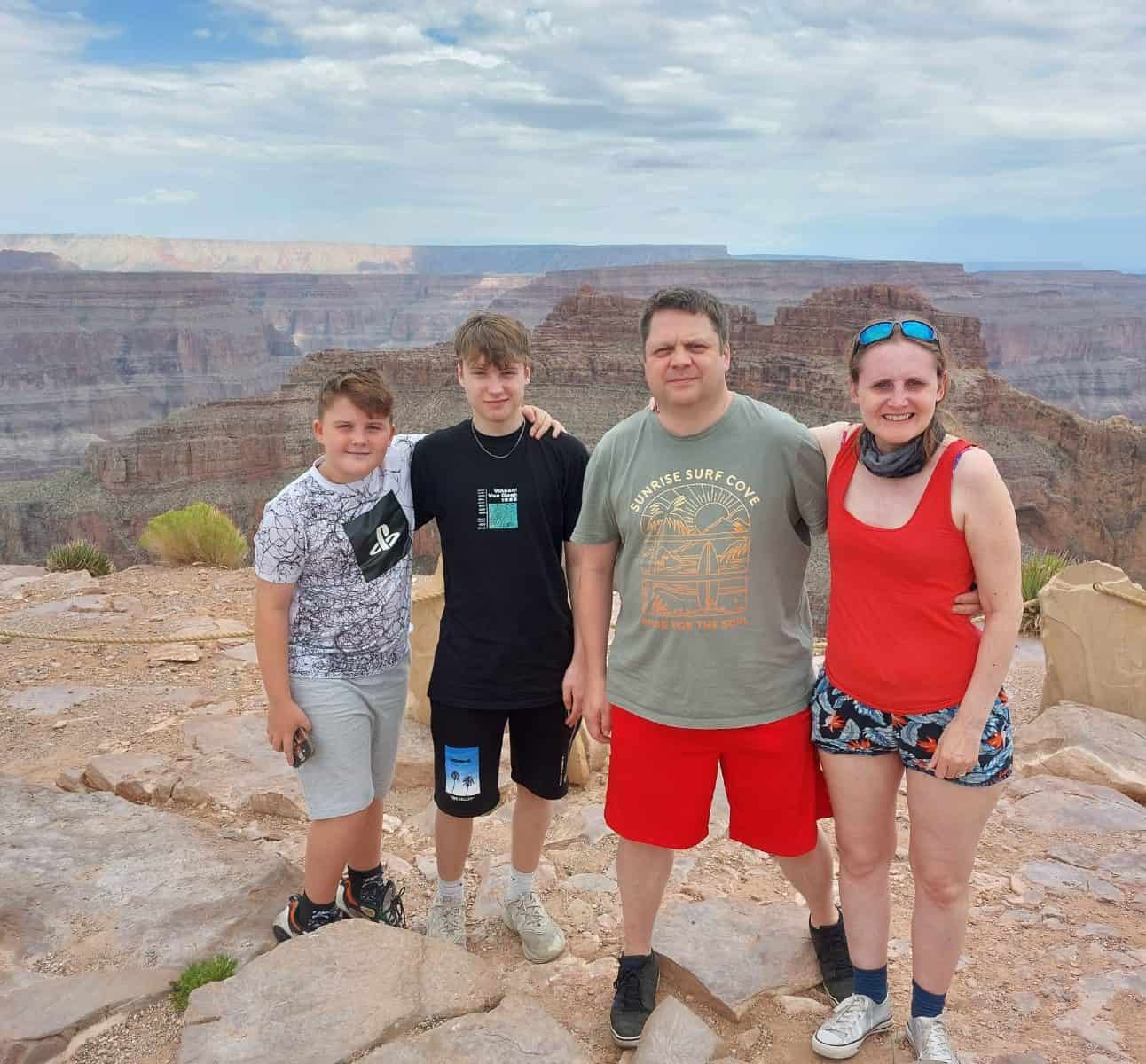
Gareth reflects on the challenges of caring for a partner with young onset dementia.
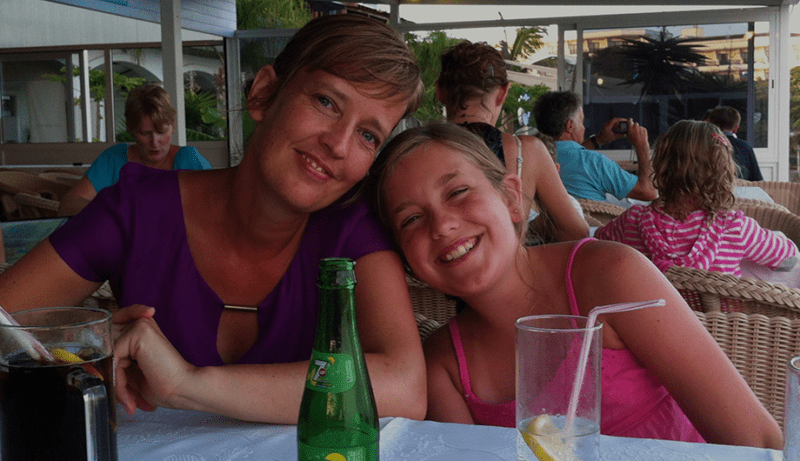
Chloe shares her experience of being a young carer for her Mum, who was diagnosed with frontotemporal dementia at 47, and died aged 51.